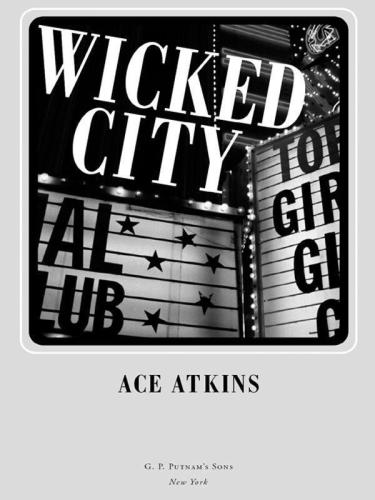
Wicked City
کتاب های مرتبط
- اطلاعات
- نقد و بررسی
- دیدگاه کاربران
نقد و بررسی

February 11, 2008
Atkins’s richly detailed but scattered sixth novel draws on the history of a real town, Phenix City, Ala., which in 1954 was overrun with gambling, prostitution and moonshine. When Albert Patterson, the state’s recently elected attorney general, is gunned down on the street, the town’s antivice group vows to bring the murderer to justice. Ex-boxer and family man Lamar Murphy leads the charge, with the rest of the Russell County Betterment Association (RBA) following suit. There are crooked characters at every turn, from the lecherous Deputy Bert Fuller, who personally inspects and “catalogues” the city’s prostitutes, to Fannie Belle, a brothel madam with a habit of collecting husbands. Even when the town falls under martial law and Lamar is appointed interim sheriff, the “redneck mafia” will do anything to prevent Phenix City from going straight. Atkins (White Shadow
) spares no punches in detailing the town’s depravity, but the result is less a coherent story and more a snapshot of a bygone era. Readers will struggle with the many names and shifting alliances, while the climax and resolution are anything but surprising. Author tour.

Starred review from January 15, 2008
In the 1950s the "wickedest city in America" was not Las Vegas but Phenix City, AL. Located just across the Chattahoochee River from Columbus, GA, and nearby Fort Benning, it was a notorious haven for gamblers, prostitutes (about a thousand in a town of 23,000 people), con men, and murderers. Worse, this cesspool of vice and human depravity was run by a corrupt political and law enforcement machine that thwarted any attempt at reform with intimidation and violence. But the 1954 assassination of Attorney Generalelect Albert Patterson, who had vowed to clean up Phenix City, set events in motion that would change this town forever. Atkins's sixth novel (after "White Shadow") and the first set in his home state of Alabama is a fictionalized retelling of this chilling murder and its dramatic aftermath. As reflected in Atkins's use of shifting narratives between the first-person voice of Lamar Murphy, a boxer-turned-gas station owner who becomes the town's new reform-minded sheriff, and the third-person perspectives of the criminals who stop at nothing to hold onto their power, this is the classic Western tale of good vs. evil, "played out not with horses and Winchesters but with Chevys and Fords and .38s and switchblades." The result is a gripping, superb crime story, all the more remarkable because it really did happen. Highly recommended for all popular fiction collections. [See the Q&A with Atkins on p. 78.Ed.]Wilda Williams, "Library Journal"
Copyright 2008 Library Journal, LLC Used with permission.

February 1, 2008
In White Shadow (2006), Atkinsspun an atmospheric thriller around the real-life murder of a Tampa gangster in 1955. Now he does the same thing with Phenix City, Alabama, another hotbed of 1950s crime. The murder of a crime-busting attorney, Albert Patterson, in 1954 was the catalyst for a group of determined cops, state government officials, and local citizens to stand up against the underworld empire that ruled the city. Atkins, who grew up in Alabama and whose grandfather had ties to the Phenix City Mob, uses Pattersons murder to frame his fictionalized account of how the city was finally tamed. His hero is a gas-station owner turned interim sheriff, who plays the Gary Cooper role herethe ordinary man forced to stand up to corruption. The novel is at its best in setting the sceneneon temptation on the streets of small-town Alabamabut Atkins is so committed to historical accuracy that he occasionally sacrifices the narrative pulse in service to backstory. Still, like Stephen Hunter in Hot Springs (2000), he effectively pulls the archetypal strings of a classic crime (and western) plot.(Reprinted with permission of Booklist, copyright 2008, American Library Association.)

























دیدگاه کاربران